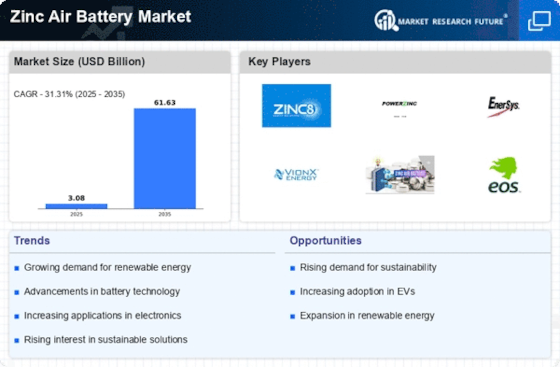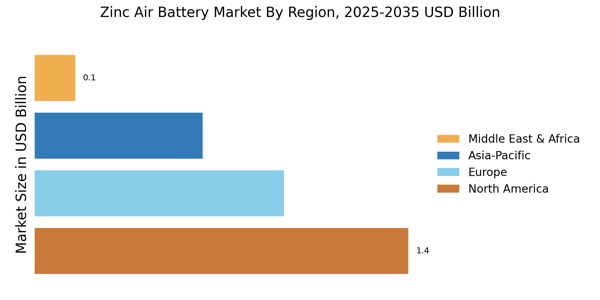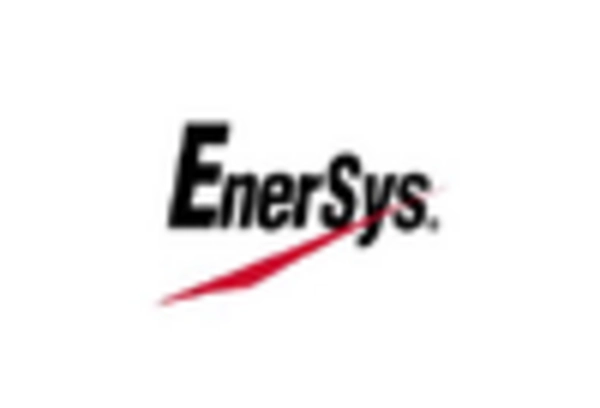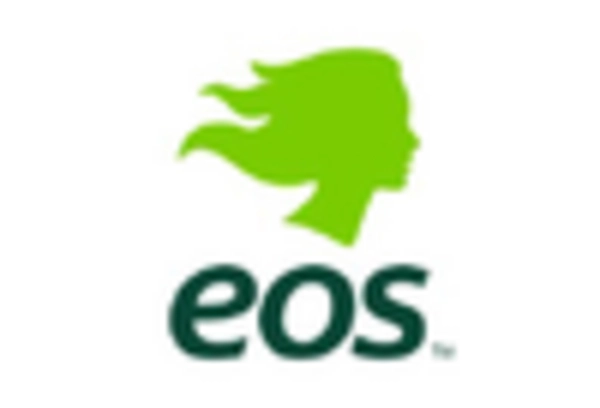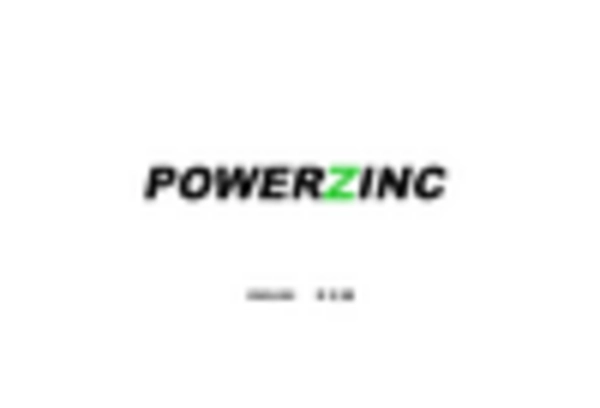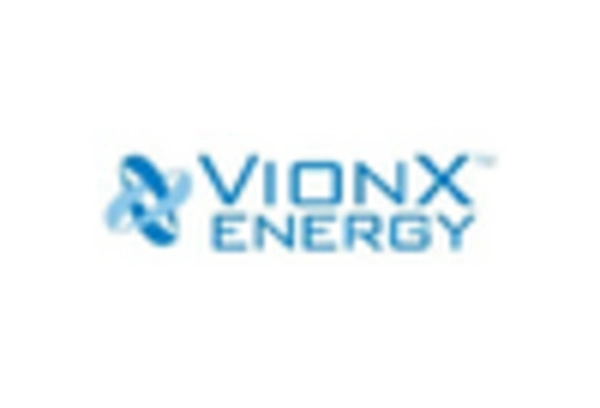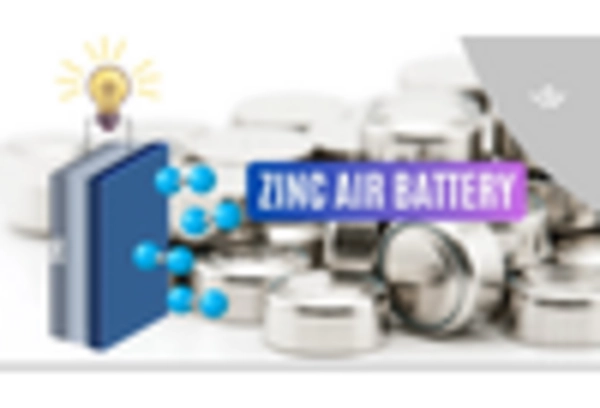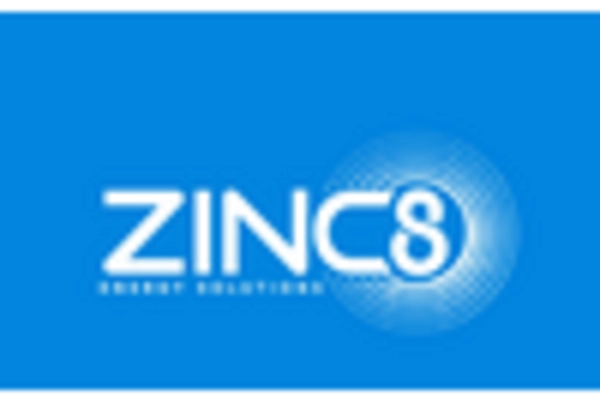Technological Innovations
Technological innovations are driving the Zinc Air Battery Market forward, as advancements in battery technology enhance performance and efficiency. Recent developments in materials science have led to improved energy density and cycle life of zinc air batteries, making them more competitive against lithium-ion alternatives. The market is witnessing a surge in investments aimed at refining production processes and reducing costs. For instance, innovations in electrode design and electrolyte formulations are expected to increase the energy output of these batteries significantly. Analysts project that the market could see a substantial increase in adoption rates, particularly in portable electronics and electric vehicles, where high energy density is crucial. This trend indicates a promising future for zinc air batteries as they become more viable for a broader range of applications.
Sustainability Initiatives
The increasing emphasis on sustainability initiatives appears to be a pivotal driver for the Zinc Air Battery Market. As environmental concerns escalate, industries are seeking eco-friendly alternatives to traditional batteries. Zinc air batteries, known for their low environmental impact and recyclability, align well with these sustainability goals. The market for these batteries is projected to grow, with estimates suggesting a compound annual growth rate of around 20% over the next five years. This growth is likely fueled by the demand for cleaner energy solutions in sectors such as electric vehicles and renewable energy storage. Companies are increasingly investing in research and development to enhance the efficiency and performance of zinc air batteries, further solidifying their position in the market.
Regulatory Support and Incentives
Regulatory support and incentives are emerging as vital drivers for the Zinc Air Battery Market. Governments worldwide are implementing policies aimed at promoting clean energy technologies, which include financial incentives for the development and adoption of alternative battery technologies. Such regulations are likely to create a favorable environment for zinc air batteries, encouraging manufacturers to invest in research and development. The market could benefit from subsidies and grants aimed at reducing production costs and enhancing the competitiveness of zinc air batteries against traditional options. Furthermore, as regulations tighten around emissions and environmental standards, the demand for sustainable battery solutions is expected to rise. This regulatory landscape may significantly influence the growth trajectory of the zinc air battery market, fostering innovation and expanding its applications across various sectors.
Growing Demand in Electric Vehicles
The growing demand for electric vehicles (EVs) is a crucial driver for the Zinc Air Battery Market. As governments and consumers alike prioritize sustainable transportation solutions, the need for efficient energy storage systems becomes paramount. Zinc air batteries offer a compelling alternative due to their high energy density and lower cost compared to conventional lithium-ion batteries. Market analysts predict that the adoption of zinc air batteries in EVs could increase significantly, potentially capturing a notable share of the automotive battery market by 2030. This shift is likely to be supported by advancements in battery technology that enhance the performance and lifespan of zinc air batteries, making them an attractive option for manufacturers. Consequently, the integration of these batteries into electric vehicles may accelerate the transition towards greener transportation.
Diverse Applications in Consumer Electronics
Diverse applications in consumer electronics are propelling the Zinc Air Battery Market. The versatility of zinc air batteries makes them suitable for a wide range of devices, from hearing aids to remote controls and wearable technology. As the demand for portable electronic devices continues to rise, the need for reliable and long-lasting power sources becomes increasingly critical. Zinc air batteries, with their lightweight design and high energy density, are well-positioned to meet these demands. Market data indicates that the consumer electronics segment is expected to account for a significant portion of the overall zinc air battery market, with projections suggesting a steady growth trajectory. This trend highlights the potential for zinc air batteries to become a preferred choice in powering various electronic devices, thereby expanding their market presence.


